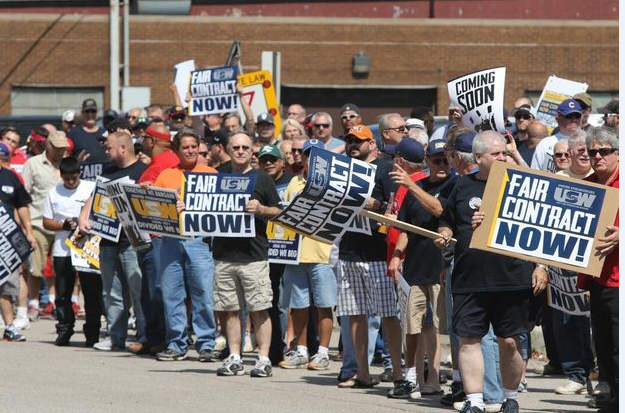Market Segment

August 20, 2015
USW Workers Rally for Fair Contract Settlements
Written by Sandy Williams
Union workers from US Steel and ArcelorMittal staged rallies and marches at locations across the country this week. Contract negotiations are stalled over concessions the companies want on health and retirement benefits.
Carrying signs and rallying to slogans like “United we bargain, divided we beg” and “No contract no peace,” thousands of USW members took to the streets to express their dissatisfaction with the contract proposals ArcelorMittal and US Steel have presented to union negotiators.

After working under the expired contract at Allegheny Technologies, talks ended after the union rebuffed the final offer by ATI. The company, subsequently, imposed a lock out on employees, a situation that some fear may happen at US Steel and/or ArcelorMittal.
ArcelorMittal and US Steel both seek to modify health and pension benefits to cut fixed costs and bring benefits in line with standards at other industries. Union members are reluctant to accept concessions on their first-class benefits packages.
The USW claims management is “attempting to use a temporary downturn in the domestic steel market as an excuse to permanently cut workers’ contract language and benefits.”
The contracts at the two companies cover about 30,000 employees and will expire on Sept. 1. The USW has issued notices to members at both companies explaining what happens during a strike or lockout.
There are four options if a new contract is not approved by the Sept 1 deadline.
1) The previous contract could be extended while negotiations continue (both parties must agree)
2) A strike could be called
3) Employees could continue to work without a contract
4) The company could lock out the employees.
“We recognize that this is a difficult time for the steel industry,” said USW International President Leo W. Gerard. “But we also recognize that for generations, these have been good, middle-class jobs that have allowed workers to care for their families and support their communities. It is important that we make sure that remains true for our generation and for those who come after us.”







